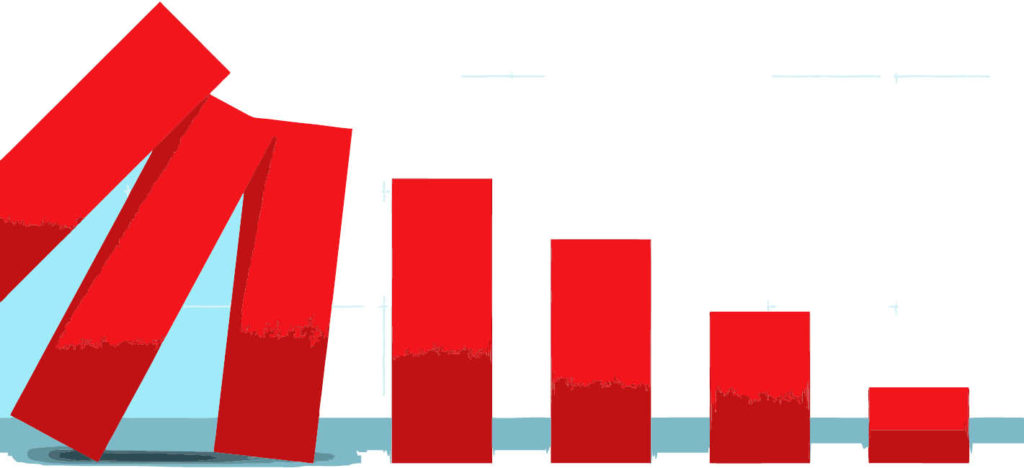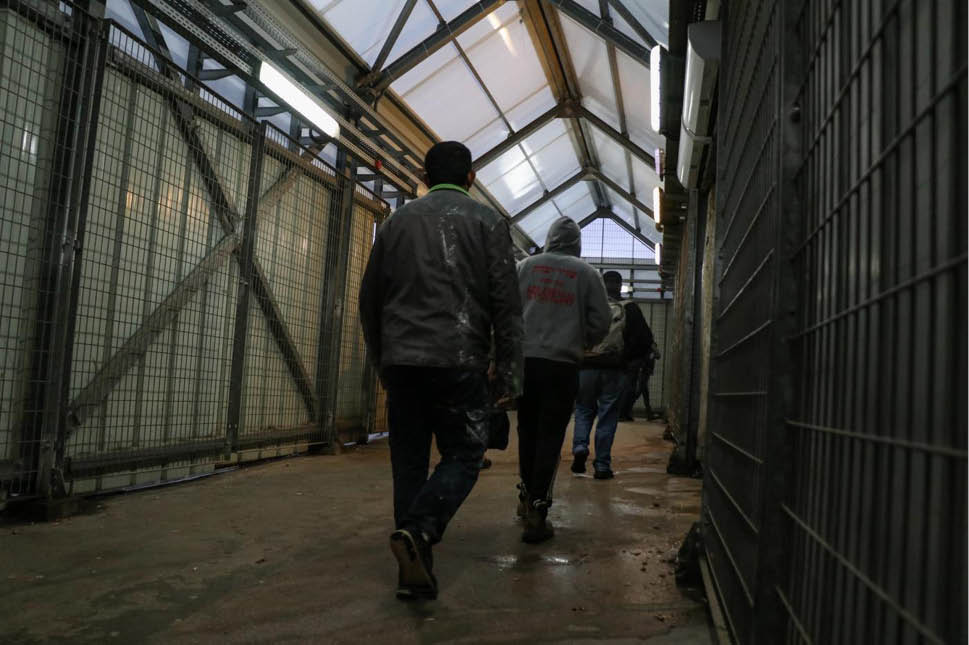“Daddy … will you die?” the shaken seven-year-old boy asked, talking over the phone to his father who had tested positive and was taken into isolation at Angels Hotel in Beit Jala, for strict medical observation and possible treatment.
Out of the blue, life has become filled with uncertainties in Bethlehem, the birthplace of Jesus and cradle of Christianity. Serenity and peace have been shattered, and a coating of bewilderment and shock covers the skies, as we are in disbelief over the fact that Azrael, the angel of death, has landed in the front yard of the Church of the Nativity, looking for souls to take away, believers and disbelievers alike. The town that used to welcome tourists began to hunt them down after the government had learned that three groups of visitors from three different nations, who had stayed in Bethlehem days earlier, had tested positive for the coronavirus disease COVID-19.

In the last twenty years, several epidemics have erupted worldwide, among them cholera, which erupts almost annually and goes on largely unnoticed by the international community; SARS, which in 2003 infected hundreds of thousands around the world; and Ebola which in 2009 left at least 11,500 dead in West Africa.
The world has witnessed only two pandemics, however, in this century. With thousands of tests carried out and closures, lockdowns, and isolation being imposed in many places worldwide, it looks as if doomsday is around the corner. But four months into the COVID-19 era, the number of infections and fatalities is nothing compared to the H1N1 swine flu pandemic that broke out in 2009 and left at least 151,000 (some estimates go as high as 575,000) fatalities worldwide, according to statistics from the Center for Disease Control and Prevention.
While we don’t know what the end game will be this time, I believe that, once the dust settles, we will realize that the universal panic has been far more dramatic than the gravity of the final number of fatalities. Social media has deemed this pandemic to be the first in its era. What we are witnessing is like a live bazaar of bad and sad news, with many rumors being circulated – in the absence of a sense of responsibility among many players. The wealth of distortion about the disease has spread much faster than the virus itself and is upturning the current world order, devastating vibrant economies and wiping out the freedom of mobility. It is ironic that while the virus itself has hunted hundreds of thousands so far, it has created exponential, unprecedented universal fear with a devastating impact on the global economy, affecting millions more.
The main question is not when we will survive, but how?
Long before a pandemic was declared, the virus existed, spread silently among communities, killed people, and destroyed national economies worldwide. Locally, we acted as if business were as usual, until reality hit hard when we learned that infections had occurred in Palestine. Only then did we realize that we are vulnerable as well, and that this “thing” is real and dangerous and could strike any one of us at any moment. COVID-19 has caught us all by surprise. It landed in Palestine amid a mix of omens, surprises, and challenges, and brought about a pandemonium of teachings, self-focus, and realizations, with repercussions that are affecting the economy, people’s discipline, and their financial, social, medical, and public health conditions. Now, the country is trying its best to survive the pandemic, like everyone everywhere else.
The Palestinian government claims that the virus spread is under control. As I am editing this article (on Monday, March 21, 2020, 3:30 pm), 3,945 tests have been conducted, of which only 1.5 percent have tested positive, (i.e., 23 cases per million persons in the West Bank, excluding East Jerusalem). However, actual spread of the virus may be higher, due to the slow and limited rate of testing, a lack of technical resources for volume testing, the negative perception of testing positive (with people avoiding publicity out of fear of social stigmatization), a relative lack of discipline among the general public, and low awareness among locals about symptoms, risks, and case management when having tested positive. Moreover, many Palestinians are strong believers in fate and destiny, thinking that God always has a purpose and may test their faith with all sorts of means to assess their religious discipline and the depth of their faith. According to them, after all, God will always protect them from risk or danger.
The virus does not respect boundaries, race, gender, values, or political regimes. It is coming after all of us. Facing the virus must be an individual, institutional, governmental, and global responsibility, starting with each one of us.
The government has taken severe protective actions. Acting sooner than most of the countries that were at high risk of a pandemic spread, the Palestinian Authority (PA) immediately enforced a lockdown of Bethlehem and the surrounding areas. This was due to a mix of panic, the expected high cost of a widespread reach of the virus, the awareness that medical and health resources are largely lacking, political sensitivity of being viewed as helpless in managing the spread, and possibly advice from neighboring or friendly countries, including international organizations such as the WHO. Of course, we should not undermine the value of our government’s interventions, including declaring a state of emergency, to help isolate the spread of this disease.
The PA’s “knee-jerk” reaction of declaring a state of emergency, with a long list of restrictive measures touching on almost all spheres of life, has fallen short of presenting an emergency economic plan of action to minimize the closure’s impact on the public at large and the local economy. Even in countries where the spread was more severe, emergency actions have been carefully taken as a last resort, with very generous economic stimulus and compensation packages. It is quite understandable that we cannot compare with measures taken by other countries, but I believe it is not too late to form an economic emergency task force, launch a compensation fund, and involve the private sector as partners in sharing the responsibility for unavoidable losses. We must carefully study each emergency action in terms of its impact on the economy (especially on micro, small, and medium firms) and on the livelihood of the people, considering in particular low-income families and seasonal and daily breadwinners.
Like many other countries, we have been caught off guard by this pandemic, shaken by the idea of a virus that spreads widely, out of control. We have to think and work outside the box, create our own trajectory for success, and excel even though we have no resources and failed to plan ahead. Due to a lack of resources and experience in handling epidemics or pandemics, the Palestinian Ministry of Health has gone through difficult times facing vulnerability and public distrust as it fears failure. It has to succeed in spite of the lack of adequate means, such as respirators, proper medically equipped isolation sites, supply-chain management expertise in case of a mass outbreak, qualified medical and health staff, and, most of all, a decent and thorough network of support and social cooperation.

The spread of this virus in Palestine is expected to be low due to the timing of its arrival in the country, as tourism in Palestine was during its low season in February 2020. Moreover, being squeezed between three sovereign countries that tightly control all entry to “Palestine” has actually played very well to our favor. It has resulted in a very low count of positive cases, most of which were contracted from three specific groups of tourists passing through the West Bank.
However, the high risk of infection for Palestinians from this rapidly spreading virus comes from two sources. The first is Palestinians returning from highly infected countries, especially after the shutdown of universities in these countries. Indeed, most of the cases outside Bethlehem have been attributed to this. The second risk comes from our workforce in Israel and the many thousands of Palestinians who are working illegally in Israeli settlements. They are at a very high risk of being infected from their employers and peers. Even though many have been given permission to stay overnight in Israel during this time of emergency, many thousands continue to commute daily to Israel proper and to settlements, with no supervision, control, or monitoring. Some of them represent a ticking bomb that may destroy all the precautions that have been taken effectively so far. On the other hand, while the Palestinian enclaves are shuttered and closed, they are still open to receiving the virus through settlers who interact with laborers and from shoppers at the largest settler chain of supermarkets, namely, Rami Levy.

The virus scare has made Palestinians and Israelis discover several realities overnight. Palestinians are being reminded that first, our country is very small, and the areas under the PA are scattered into small enclaves over which we have only limited control, especially in so-called Area C, while both Gaza and East Jerusalem are only remotely connected to the remaining West Bank enclaves. Second, it is very clear that an emergency in Israel directly affects the heart of “Palestine” due to our almost total dependence on Israel in various spheres of life, and vice versa. Third, we have limited leverage in fighting the virus. The Ministry of Health must excel despite its shortcomings in terms of capacity, organization, and leadership. Fourth, our health “army” has shown resilience and determination and engages in hard work to spread hope among the people that we shall prevail at last. Fifth, our professionals are the best safeguard for us all, and this pandemic is a great eye-opener to the need for significant investment into national capacity building, professional training, original research, and quality university education.
On the Israeli side, this pandemic represents a wake-up call for Israeli right-wing politicians who have a limitless appetite for destroying the two-state solution. They must have realized by now that we do exist and are valuable for their economy. The frequently raised so-called “security” claims are becoming less of a concern and have ultimately proven baseless, as 65,000 Palestinians are allowed to work and sleep in Israel. These right-wing politicians must realize now that a border exists between us, and in the absence of good neighborly relations, we could be very annoying, even by having an occasional flu.
As Israel has created a terrible overlap between the various spheres of life in historical Palestine, its colonial actions (i.e., illegal settlement expansion) have made it very difficult, if not impossible, for Palestine to separate the two areas and disengage from Israel to form a viable state. This is significant for those who are looking for a way out of the current stalemate in the political track. It may mean that Israel must realize that its colonial actions of squeezing us are destroying the two-state solution with the only option favoring a one-state outcome.
While trying to cope and survive, we are forced to try things we never thought of, such as social distancing, greeting without handshaking and hugging, relative discipline in learning how to be constructive and cooperative, substituting classical education practices by remote learning despite limited internet capacity and access, taking the government seriously even when we may neither trust nor value it, and washing our hands many times a day for sterilization even if we are not doing it in preparation for prayer. On the other hand, some of us have proven that we are not angels in dealing with the crisis; eccentric behavior has emerged in response and opposition to government actions, as some areas have ignored or rejected calls for isolation, and others have refused to offer accommodation to those who need to be isolated.
Under these dire circumstances, the currently available remedy seems to be: lockdown or die.
The crisis we all are facing confirms our interdependency. It will be overcome only if we work together locally, regionally, and universally. We must keep in mind that this virus has moved, traveled from a very remote area, and touched the souls of the people of this earth for quite some time before we realized that a pandemic was in the making. The virus is putting tremendous stress on economic, health, and medical infrastructures everywhere. A potential treatment or vaccine is not known, and if found, it will take a long time before it can be made available commercially.
Governments are taking protective actions, but mostly on their own, with no universal solidarity or serious efforts from the house of nations to produce common grounds for combating the virus. Closing doors rather than working together will not improve protection for any country. On the contrary, it may worsen the situation for many countries, especially the poor ones. The main lesson from this outbreak may well be that we need more unified action, less selfish interest, and more global responsibility to protect our planet and its people.


